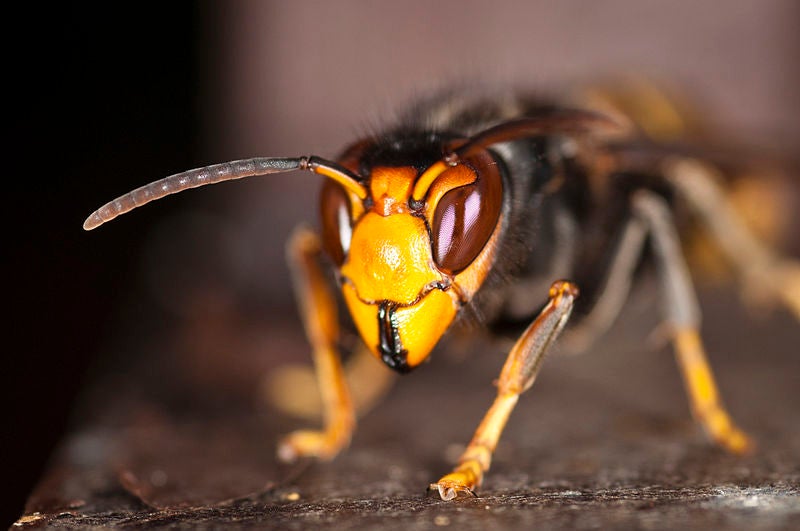Asian hornets: UK draws up plan to counter invasion of 'very aggressive predator'
The hornets pose less of a threat to humans than they do to bees

Your support helps us to tell the story
From reproductive rights to climate change to Big Tech, The Independent is on the ground when the story is developing. Whether it's investigating the financials of Elon Musk's pro-Trump PAC or producing our latest documentary, 'The A Word', which shines a light on the American women fighting for reproductive rights, we know how important it is to parse out the facts from the messaging.
At such a critical moment in US history, we need reporters on the ground. Your donation allows us to keep sending journalists to speak to both sides of the story.
The Independent is trusted by Americans across the entire political spectrum. And unlike many other quality news outlets, we choose not to lock Americans out of our reporting and analysis with paywalls. We believe quality journalism should be available to everyone, paid for by those who can afford it.
Your support makes all the difference.British bee-keepers are being warned to stay alert for an invasion of Asian hornets described as a “very, very aggressive predator” – to British bees, that is.
The Western Daily Press reports that “battle plans” are being drawn up to counter an invasion of the 3cm long hornets which killed six people in France last year.
They arrived in France in 2005 and a report by the House of Commons Environmental Audit Committee (ECA) warned they could travel to the UK within the coming years.
Queens are typically up to 30mm long, whereas worker bees grow up to 25mm. They have an entirely dark brown or black velvety body, bordered with a fine yellow band.
Carolyne Liston, the chairman of the Norfolk Beekeepers' Association, warned: "They are a very, very aggressive predator.
"They wait by the entrance and grab foraging bees as they come back into the hive. They can absolutely decimate bee colonies. We are concerned they are going to come into Britain on someone's caravan who has been travelling in France."
A spokesperson for the Department for Environment, Food and Rural Affairs (Defra) told The Independent it was important not to confuse Asian hornets with their more deadly counterpart, the Asian giant hornet.
Asian giant hornets are three inches long, more toxic than other bees and have never been spotted in Europe. The spokesperson said the Asian hornet poses no greater threat to people, despite the six deaths from anaphylactic shock.
However, the Asian hornet can cause issues for honey bees and their presence in France is a concern for British beehives.
A Defra Spokesperson said: "There have been no confirmed sightings of Asian hornets in the UK. We are aware of the potential impacts they could have on honey bees and have plans in place to remove them if they are identified. This includes comprehensive monitoring and teams ready to destroy any confirmed nests."
Join our commenting forum
Join thought-provoking conversations, follow other Independent readers and see their replies
Comments